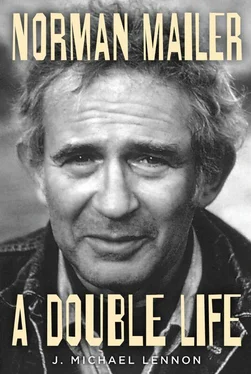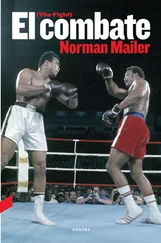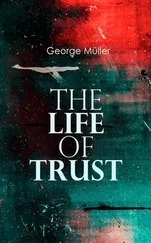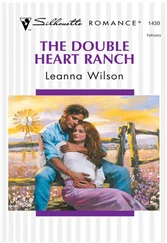The most impressive thing about the notebook is how it functioned as a wellspring. The examples of his literary trinity of Farrell, Dos Passos, and Steinbeck, encouragement in English A, and interaction with other aspiring writers in the seminar, generated writing momentum. He wrote fifteen stories based on the notebook jottings over the second semester of his freshman year and the following summer. His desire to write was also whet by the possibility of getting on the Advocate. When his Uncle Dave found out about his hopes for the magazine, he offered to speak to Bruce Barton Sr., whom he knew from New York business circles, but Mailer nixed the idea, writing home, “There’s no use making it, if I can’t do it on my own.” A week later he wrote home with the bad news that the Advocate had rejected his application, saying the stories he submitted were deemed fluid but deficient in plot. The editors, he admitted, were probably right.
His first semester papers for English A are on garden-variety topics, for example, freedom of speech and a discussion of Malthus’s Law. But second semester he turned in six short stories, including the two he submitted to the Advocate. Never the minimalist, he wrote one that was almost six thousand words. His grades ranged from C+ to B+. For the last paper of the year, Mailer asked if he could submit one more story, and his instructor, after some discussion, agreed. Originally titled “Now I Lay Me Down to Sleep,” he concluded that this too blatantly echoed a Hemingway story title and settled on “Prelude to Sleep.” Submitted on May 21, the story is a first person psychological account of the loss of virginity by Mark, a Brooklyn youth, before he goes off to college, an event preceded by months of frustrated petting with his girlfriend, Susan, punctuated by his self-serving theories on free love, true love, the family, and society. After Mark convinces Susan to have sex, he concludes that the “long, terrifying, childish period of sexual self-analysis and shame” was finally over only to find the consummation tainted. He discovers that “even at the height of coitus, his analytical mind was working and it annoyed him.” The story received an A—, his highest grade of the year, and brought his final grade up to B. Harvard was stingy with grades, especially for freshmen.
AS MAILER WAS forging his literary vocation in the smithy of English A, isolationists and interventionists were lining up against each other on campus. Poet Archibald MacLeish, in a welcoming address to his class, compared it with the class of 1918. The earlier generation saw World War I “as a finality,” he said, but they were wrong. “The last war was not an end but a beginning.” Harvard’s students were not at all pleased with this news. The Crimson came out four-square against the war, saying in an editorial, “We are frankly determined to have peace at any price.” But President James B. Conant told the first chapel service of the year, “The forces of violence must be beaten by superior violence.” Mailer’s first response to the war, made while MacLeish was giving his importuning speech, was to jot down a very brief story, titled “It,” which follows:
We were going through the barbed-wire when a machine gun started. I kept walking until I saw my head lying on the ground. “My God, I’m dead,” my head said. And my body fell over.
If his mini-story demonstrates his awareness of the war, it should be said that it was impossible to ignore. The newspapers, newsreels, and radio were saturated with reports of the events in Europe — the German-Italian alliance, the German-Soviet pact, the invasion of Poland, speeches by Hitler and Churchill, and general mobilizations in England and France. Harvard’s 3,500 undergraduates knew that if the United States entered the war they would be among the first to go and, compensatorily, they partied a lot. Swing bands were the rage and Glenn Miller’s “Moonlight Serenade” was the big hit of the year. A member of the class of 1942, one Lothrop Withington Jr., started a nationwide craze by swallowing a live goldfish, just months before Congress began discussing the first-ever peacetime draft. In his letters home Mailer made no mention of anything but grades, football games, laundry, allowance checks, and, more and more as time went on, literary activities. In avoiding the topic of war, he was not much different from his fellow Harvard students. In a May 1940 poll, 91 percent of them opposed going to war. In 1939 and early 1940, Harvard wanted it to go away.
A good part of student reluctance to accept the inevitability of war came from the widespread sympathy for leftist ideas and principles. The leader of Harvard noninterventionists was the grave, revered F. O. Matthiessen, an avowed socialist and author of American Renaissance: Art and Expression in the Age of Emerson and Whitman. Mailer heard him lecture more than once and was deeply impressed. Arthur Schlesinger Jr. (Harvard ’38) visited Matthiessen at a time when England was beleaguered. During their discussion of the war situation, Schlesinger said that Churchill was the only hope. “Matty said with great intensity, ‘Winston Churchill is the epitome of everything I have hated all my life.’ ” But when Germany invaded Russia in June 1941, Matthiessen endorsed the war. He even wrote an essay for the 1943 yearbook, “The Humanities in a Time of War,” in which he praised the engaged humanism of André Malraux, who would soon become one of Mailer’s heroes.
Mailer’s sentiments changed in about the same time frame as Matthiessen’s. John Crockett, with whom Mailer would later be associated on the Advocate , remembers talking to him after MacLeish’s welcoming address. Mailer, he said, called the speech “crap” and argued that there would be no war. Although he did not remember meeting Crockett until February 1940, he could very well have been antiwar in September 1939. In his “Harvard Journal” he recalls that after reading Farrell, Dos Passos, and Steinbeck, he became “a leftist & an advocate of free love. The leftism came from the books; I can’t remember that the problem bothered me before then.” He adds that by his sophomore year, “I was violently leftist, & almost joined the YCL [Young Communist League].” Support for U.S. involvement in the war began to grow with the fall of France in June 1940, but Mailer showed no real interest in world events until later. He had something else on his mind: sex.
During his sophomore year, Mailer went to the Treasure Room of the Widener Library and there read D. H. Lawrence’s novel Lady Chatterley’s Lover , unpublished in the United States at that time. It was one of the perks of the Harvard experience and deeply moving, he said. “It changed my sex life, or rather, accelerated it.” He read Henry Miller’s Tropic of Cancer at about the same time and later paid homage to Lawrence and Miller in his work. From the very beginning of his writing career, Mailer wanted to jump into the ocean of sex and plumb its secrets. He admired the resistance to anti-obscenity laws and prudery in general by Lawrence, Joyce, and Miller, and was eager to explore sex from A to Z. From one perspective, his sixty years of writing can be seen as an untrammeled examination of all things sexual — a long list. He would grapple with everything from the funky odors of lovemaking to the inalienable joys of marriage and children, from promiscuity and free love to abortion, masturbation, and orgies. He examined the humor in obscene speech and writing, as well as the problems of contraception and the mysteries of conception and pregnancy. He wrote about homosexuality, bisexuality, sadism, masochism, pornography, AIDS, and incandescent one-night stands. Sometimes he seemed ahead of the times, as when he was called the prophet-seer of the 1960s sexual revolution; sometimes he appeared to be deeply regressive, as in opposing contraception, but he was always a passionate responder to the conundrums of sexuality and identity. In Henry James’s era, he would have expired of frustration. In 1941, when he read the unexpurgated Lady Chatterley , the Depression was ending, life was opening up, and the Victorian ark of sexual repression was sinking. But it was going down too slowly. Mailer wanted to torpedo it.
Читать дальше












